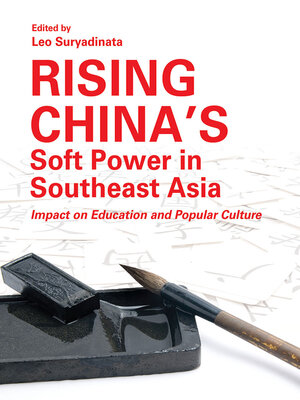Rising China's Soft Power in Southeast Asia
ebook ∣ Impact on Education and Popular Culture
By Leo Suryadinata

Sign up to save your library
With an OverDrive account, you can save your favorite libraries for at-a-glance information about availability. Find out more about OverDrive accounts.
Find this title in Libby, the library reading app by OverDrive.



Search for a digital library with this title
Title found at these libraries:
| Library Name | Distance |
|---|---|
| Loading... |
The book addresses the issues of China's soft power in Southeast Asia during the rise of China. This soft power includes Chinese language education and popular culture. With regard to Chinese education, prior to the rise of China, Chinese schools were catered to mainly overseas Chinese children. Non-Chinese seldom received Chinese education. However, the rise of China and the export of Confucius Institutes (CIs) changed the landscape as CIs are meant for the non-Chinese population as well. China's educational soft power penetrated the larger non-Chinese community, making Chinese soft power more effective. Chinese popular culture has also infiltrated the non-Chinese population.Various chapters in this book show that rising China's soft power in Southeast Asia has grown quite significantly, particularly in terms of the Chinese language and Chinese popular culture. Nevertheless, its popularity still lags behind American soft power. The Chinese language is still not as popular as the English language. The same could also be said for Chinese popular culture. The growth of China's soft power faces tremendous challenges in the Southeast Asian region. Its further growth would depend on China's continuous economic power and cordial relations with the Southeast Asian countries.







